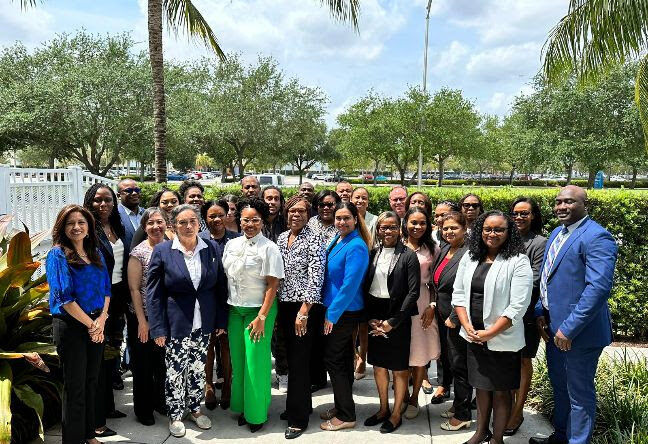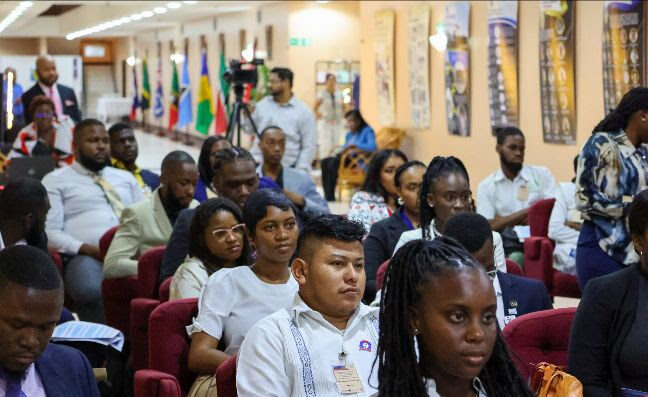The former governor of the Central bank of Barbados, (CBB), Dr. DeLisle Worrell is urging regional countries to seriously consider using the United States dollar as their national currency, after initially arguing that Caribbean currencies served a crucial purpose when they were first introduced, but they have now become a nuisance in today’s digitised world.
Writing in the July edition of his “Monthly Economic Newsletters,” the economist said that the one question which always surfaces in response to his call to retire all Caribbean currencies is about national sovereignty.
“Most people seem to believe that sovereignty is “lost” with the retirement of the local currency. On the contrary, replacing domestic currency and deposits with US currency and deposits gives everyone in the country wider access to goods and services.
“With domestic currency you can buy only local goods and services; with US dollars you can purchase from anywhere in the world, wherever you can get the best value for your money,” Worrell wrote, adding that the fact of the matter is that the US dollar is sovereign in international transactions “and there is nothing than can be done about that.
He said even China, the world’s second largest economy, with 15 per cent of global gross domestic product (GDP) to the US’s 24 per cent, accepts payments in US dollars.
“A Jamaican travelling to Haiti, a Guyanese to Suriname, a Dominican to Guadeloupe, a Trinidadian to
Barbados, all take US dollars with them. All hotel rates and oil and commodity prices are quoted in US dollars.
“Ironically, having a domestic currency in today’s digital world may make a country more susceptible to US sanctions than a fully dollarised country would be,” he said, arguing that Washington’s sanctions against Cuba and Iran “are effective because Cubans and Iranians earn in a local currency whose value continues to fall because the country’s access to US dollars is limited.
“The US reaps tremendous benefit from the fact that its currency is in universal use. Countries which have their own currencies all maintain a reserve of foreign exchange at their central banks with which to protect the value of domestic money. Those reserves are mostly held in US treasury securities, and constitute a loan to the US Government.
“However, a country like Panama which has no currency of its own does not have that problem,” he noted.
“The bottom line is that rather than impairing national sovereignty, replacing the domestic currency empowers the country and its citizens by giving access to the world’s goods and services, to the full extent of their incomes. Moreover, the country has no need to offer credit to the world’s wealthiest nation, in order to maintain the value of domestic financial assets.”
Earlier Worrell had said Caribbean currencies should be replaced because the present world of commerce and finance bears no resemblance to the world for which Caribbean currencies were devised. “Up until the 1960s in most Caribbean countries, all retail transactions and many wholesale transactions were settled with notes and coins. The means of payment were always scarce in those days, because our countries are so distant from the European capitals that issued the world’s major currencies.”
He said nowadays, currency notes and coin, mostly of uncertain value in terms of purchasing power of the everyday goods and services countries need to source abroad, are little used domestically.
“Mostly we use electronic transfers, cheques and credit cards. Since these are all computer records, it is immaterial how they are denominated, so long as both ends of every transaction match. There is no reason to link the denomination of the electronic transactions to the value of notes and coins.”
He said replacing the Barbados dollar with the US dollar for all transactions, domestic and foreign, enhances the range of choice open to the country and its residents, in all international commerce.
“International transactions are conducted in US dollars or in currencies that are convertible to US dollars. In contrast, with Barbados dollars you cannot buy or sell anything outside of Barbados, not even in nearby St Lucia, much less in the rest of the world. The GDP of Barbados in 2018 was about US$5 billion, but the country had access to less than US$3 billion of international goods and services, because that was the total availability of US dollars and other foreign exchange from exports, tourism and other services, and foreign financial inflows.”





The USA dollar is artificially propped up way beyond its actual value by this type of thought process. No way buddy. It’s just a matter of time until a world currency emerges to replace the USA currency, and the devaluation of the greenback will occur. I also find it morally reprehensible to carry the USA dollar in my wallet, and cannot wait for the day when that will not be necessary. Feel that my complicity funds the never ending wars and machinations of the USA Government. One LOve